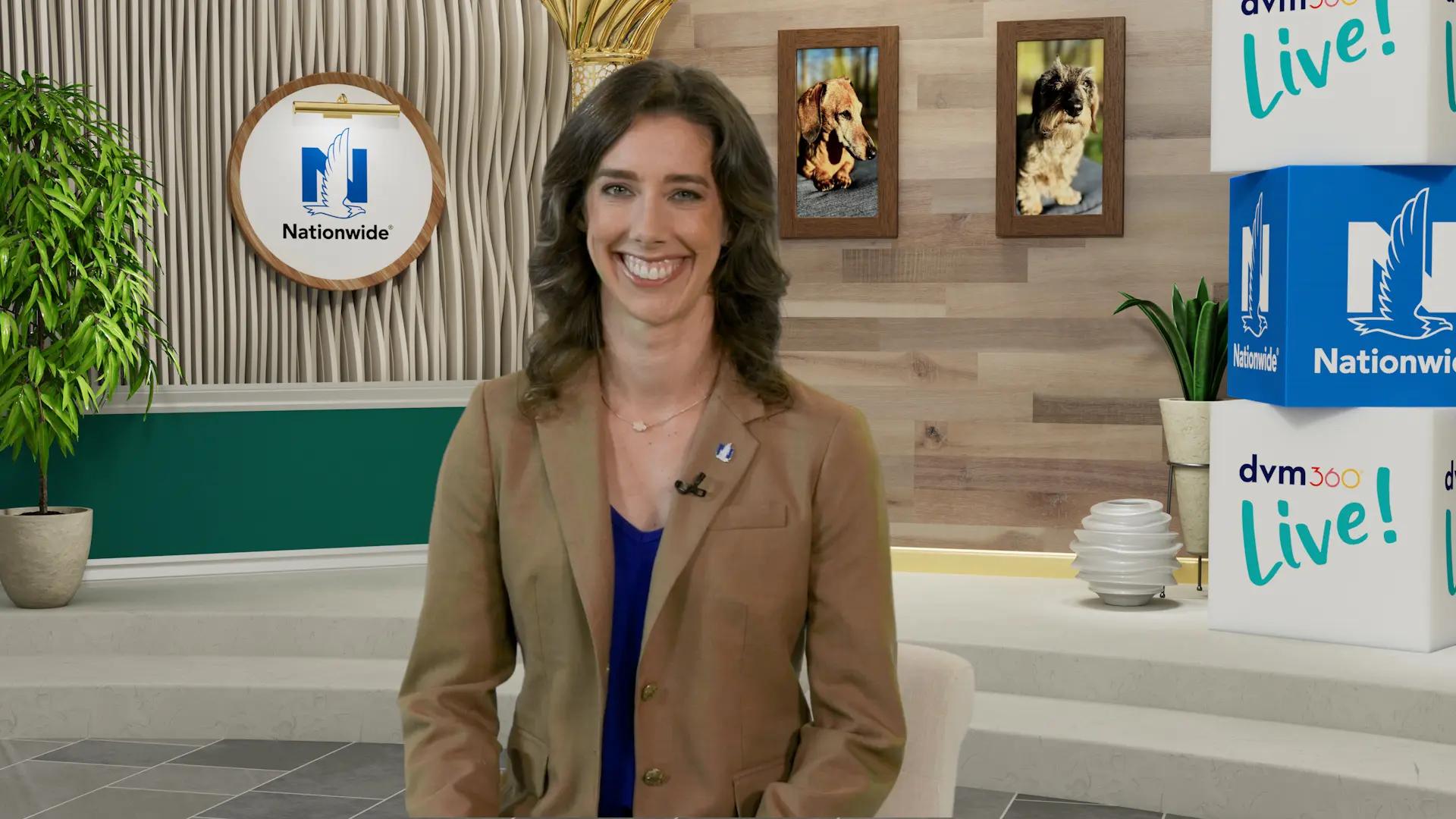The spectrum of care with Emily M. Tincher, DVM
How this approach to care can improve communication with pet families and treatment for pets
This content is sponsored by Nationwide.
Every pet owner who comes into a veterinary office will have different factors that contribute to how they can care for their pet. As veterinary healthcare professionals, it is important to take those into consideration to provide the best options for pet families. Adam Christman, DVM, MBA, of dvm360 Live, spoke with Emily M. Tincher, DVM, Senior Director of Pet Health at Nationwide, about how a shift to spectrum of care can help by creating a nonjudgmental care approach.
Emily M. Tincher, DVM

Adam Christman, DVM, MBA: Can you review what a spectrum of care approach in veterinary medicine looks like?
Emily M. Tincher, DVM: Spectrum of care is a great way to increase access of care. A spectrum of care approach combines evidence-based medicine with pet family emotional, physical, and financial resources, then communicates a range of options to pet families without judgment. That means providing a range of diagnostic and treatment options from basic to advanced that meets pet families where they are.
Christman: What is it about the spectrum of care concept that is so close to your heart?
Tincher: I grew up in my parents’ veterinary practice in rural Kentucky, where I saw them provide an amazing spread of care, from very basic to advanced diagnostics like digital radiology and surgical laser. Later, I worked at a specialty referral hospital in Philadelphia. Both workplaces showed me that treatment had to be tailored to pet parents who have different needs and different budgets.
Christman: Why is Nationwide’s attention on spectrum of care?
Tincher: One in 3 pet families would struggle with paying for an unexpected $500 veterinary expense. Also, approximately 60% of Americans live paycheck to paycheck. These are some of the reasons it feels uncomfortable to have monetary conversations in the exam room as a health care team. We have to understand that not everyone can afford the most advanced care or, sometimes, even wants that level of care for their pet. We must release ourselves from trying to convince everyone to choose that option because we don’t know every factor going into that decision. There might be multiple best options, as long as we are taking care of the pet.
Christman: What did you learn about how families decide what is best for their pets’ health?
Tincher: Through our research with Rehavior, we learned that families have different priorities in making their pet’s care choices, and they fall into 3 groups. First is the group who is concerned about costs and will likely choose basic or intermediate care. This group needs the most communication and clinical empathy from veterinarians. The second group is focused on convenience: How can they save time or have fewer trips to the hospital for rechecks? The last group is based on choice. These pet owners want to know all their options (and the evidence-based medicine supporting them) and often have a strong bond with their general practitioner.
Christman: Can having insurance move someone into a different category? For example, if someone is extremely cost-conscious and chooses to invest in insurance, does that mean they change their focus away from cost and focus more on convenience or options?
Tincher: The group each person fits into might be their “home base,” but different circumstances for themselves or their pet may change that. In short, pet insurance helps reduce cost as a factor, but the spectrum of care is about more than just cost. Additionally, research we’ve done with Vetsource shows Nationwide-insured pets go to the veterinarian more often and are more likely to stay up to date with visits to their general practitioner.
Christman: How is Nationwide advocating for a broader adoption of spectrum of care?
Tincher: Nationwide wants to continue to innovate products that help pets receive a little more care with with the pet protection solution that meets their budgets and goals. Through our college program, in partnership with the Veterinary Business Management Association, we also present sessions to students at every veterinary school in the United states about practicing spectrum of care and how to communicate to pet families in nonjudgmental ways. At conferences, we talk about what it looks like to integrate evidence-based medicine. Through these efforts and more, we hope to encourage wide adoption of the spectrum of care.
